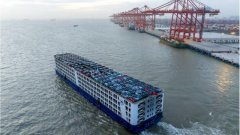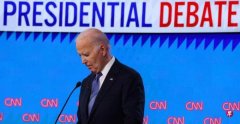Source: Bloomberg
The high -level mainland government will gather together this month to attend one of the most important meetings in China's political calendar, which may cover issues such as chip technology to land and fiscal and tax reform.However, it is expected that the fact that the common major policies in the past will not appear this time.
The Third Plenary Session will be held in Beijing. About 400 high -level government, the head of the military, the provincial leadership and scholars of 400 attendees to lead the political and economic processes.However, whether this year can introduce some major reforms that revive market emotions, investors have not held much expectations.In the past few weeks, a large number of official press releases, articles, and official media comments have shown that it is to strengthen the long -term goal of President Xi Jinping.
The MSCI China stock index fell 10%from the high point last week, and a Bloomberg China developer index fell nearly 30%compared with the May high.In the pessimistic atmosphere of the domestic economy and future supporting measures, China's 10 -year Treasury yield fell to a historical low on Monday.
ABRDN Investment Director XIN-YAO NG said that the outside world is not expected to be high, so it is not considered that there will be too much disappointment; NG is not confident that any major stimulus measures will be introduced.
The Central Political Bureau of the Mainland Government held a meeting last Thursday to decide that the third plenary meeting of the Central Committee was held from July 15th to 18th.The manuscript is requested to review the Third Plenary Session.The goal is to build a high -level socialist market economy system by 2035.
Morgan Chase's Haibin Zhu and other economists such as Haibin Zhu pointed out in the report last week that in the past few decades, the policy innovation of the Third Plenary Session has always occurred at the same time as the slowdown of the highest leadership.They wrote that the situation was different this time.
However, how the concept of innovation -driven growth, risk prevention and common prosperity will affect official decisions in the next few months, and may have valuable signs.Any suggestion on solving economic problems (such as real estate downturn, local government financial pressure, and weak domestic demand) will affect the market.
The following are the main policies that traders and analysts expect the Third Plenary Session to clarify:
Supply Chain Security
As the United States and its allies have strengthened the export of key products such as cutting -edge semiconductors to China, China has been trying to make breakthroughs in core technologies to ensure the security of the supply chain.Beijing also regards technological innovation as a new long -term growth engine, which helps get rid of the previous debt -driven infrastructure investment model.
In recent years, technology self -sufficient and industrial modernization has been listed as an important task list in the main documents of the government and the party to promote Xi Jinping's concept of high -quality development.An article published in June in the article of the party media, Han Wenxiu, deputy director of the Central Finance Office in charge of daily work, pointed out that it is necessary to "deepen the reform of the education science and technology talent system, promote innovation and development, and accelerate the establishment of a modern industrial system."
Morgan Stanley's Robin Xing and other economists wrote in a report on June 26 that this plenary session may maintain the economic framework formed in recent years: prioritize the supply chain to self -sufficient and technological innovation aspectsBottleneck.
Urbanization and rural reforms
Despite decades of expansion, only 66%of China's total population lives in cities, and the proportion of many developed countries is higher than 80%.This means that urbanization will still be a key driving force for economic growth, and the government needs to solve a series of problems in the process of urbanization.
Under Xi Jinping's promotion of common prosperity, more farmers enter the city to work, strengthening the necessity of expanding the social security network and public services.This will require further relaxation of restrictions related to the hukou system.
Rural land reform (discussed in the previous Third Plenary Session) may accelerate the pace.Morgan Chase analysts wrote in the report that allowing rural housing transactions will release funds to fund public housing and social security networks. Family and local governments can share the income brought by land reform and value.
These measures are in line with the official goal of letting the market play a key role in resource allocation.If it can be successfully launched, it can also gradually improve consumer spending power to help the economy re -balance.
Finance/Tax Reform
For decades, most of the infrastructure expenditures of stimulating growth have been borne by the Chinese local government.After the provincial -level debt accumulates, it may be difficult to continue, and the sluggish property market has made the situation worse.
Economists have always called for the central government to increase fiscal expenditure to support the economy and adjust the tax system to provide more sustainable income for local officials.Chinese leaders said at the Central Economic Work Conference in December that "a new round of fiscal and taxation system reform should be planned." The outside world expects that the Third Plenary Session may announce relevant details.
Some people predict that consumption tax reforms will be introduced, the source of income of local governments will be introduced, and value -added taxes are further reformed (China's largest tax source).
Goldman Sachs's Lisheng Wang and other economists said that in the long run, property taxes and inheritance tax may be extensively levied, and state -owned enterprises may conduct more profit transfer and dividend payment.They wrote in a report on June 27 that considering the pace of China's recovery and confidence reconstruction, such measures should be cautious and cautious.



